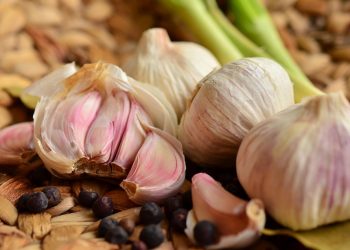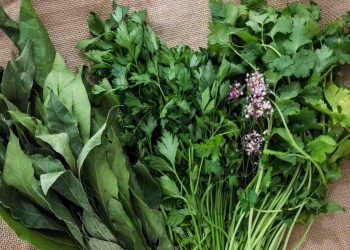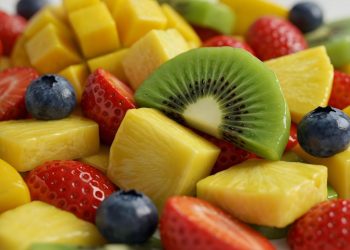10 Must-Have Items for Your Low Inflammation Diet Grocery List is more than just a catchy title; it’s a lifeline for anyone looking to reclaim their health. If you’ve been feeling sluggish, achy, or just “off,” it might be time to consider the foods you’re putting into your body. An anti-inflammatory diet can help reduce chronic inflammation and improve your overall well-being.
So, what exactly is a low inflammation diet? Simply put, it’s a way of eating that focuses on foods that fight inflammation and avoids those that trigger it. This matters because chronic inflammation is linked to numerous health issues, from heart disease to autoimmune disorders. Embracing this lifestyle can be a game-changer for your body and mind.
Contents
Why Focus on a Low Inflammation Diet?
Chronic inflammation can sneak up on you. It’s not just about feeling a little bloated or tired; it can lead to serious health problems down the road. When you bring anti-inflammatory foods into your life, you’re not just preventing discomfort; you’re actively working to enhance your overall health. Imagine waking up each day feeling vibrant and energized — that’s the power of good nutrition.
1. Leafy Greens
Kale, spinach, and Swiss chard are your best friends in this journey. Packed with vitamins, minerals, and antioxidants, these leafy greens help combat inflammation effectively.
- Nutrient-Rich: High in vitamins A, C, and K, they support your immune system.
- Low-Calorie: Perfect for those looking to maintain a healthy weight without sacrificing nutrition.
Tip: Toss them into smoothies, salads, or stir-fries for a nutritional boost.
2. Fatty Fish
Salmon, mackerel, and sardines are not just delicious; they are also powerhouses of omega-3 fatty acids. These healthy fats are known to reduce inflammation levels in the body significantly.
- Heart Health: Omega-3s promote cardiovascular health.
- Mood Booster: They support brain function and may improve mood disorders.
Tip: Aim for at least two servings of fatty fish per week. Grill, bake, or poach for a tasty meal.
3. Berries
Blueberries, strawberries, and blackberries are not just pretty to look at; they’re also packed with antioxidants called flavonoids. These little wonders fight oxidative stress, which can lead to inflammation.
- Fiber-Rich: Supports digestive health.
- Versatile: Great in smoothies, salads, or enjoyed on their own.
Tip: Fresh or frozen, these berries make a great snack or breakfast addition.
4. Nuts
Almonds, walnuts, and pistachios are more than just crunchy snacks. They’re filled with healthy fats, protein, and fiber, making them an excellent choice for fighting inflammation.
- Satiety: Keep you feeling full longer.
- Rich in Antioxidants: Combat oxidative stress in the body.
Tip: A handful a day can keep the inflammation at bay. Sprinkle them over oatmeal or yogurt for added crunch.
5. Olive Oil
Extra virgin olive oil is a staple in a Mediterranean diet and should be on your grocery list. Rich in monounsaturated fats and antioxidants, it’s known for its anti-inflammatory properties.
- Heart-Healthy: Supports cardiovascular health.
- Flavorful: Adds a rich taste to salads and dishes.
Tip: Drizzle over vegetables or use it as a base for salad dressings.
6. Turmeric
This golden spice is a powerhouse in the anti-inflammatory world. Curcumin, the active ingredient in turmeric, has been shown to reduce inflammation and oxidative stress.
- Natural Pain Reliever: May help with joint pain and arthritis.
- Versatile Use: Can be added to soups, stews, and even smoothies.
Tip: Pair it with black pepper to enhance absorption.
7. Whole Grains
Quinoa, brown rice, and oats are excellent sources of fiber, which is essential for gut health. They help regulate inflammation and keep your digestive system running smoothly.
- Energy Boosting: Provide sustained energy throughout the day.
- Nutrient Dense: Packed with vitamins and minerals.
Tip: Swap refined grains for whole grains in your meals.
8. Avocados
These creamy fruits are not just a trend; they’re a staple in any low inflammation diet. Packed with healthy fats, fiber, and a plethora of nutrients, avocados are a must-have.
- Heart Health: Lower cholesterol levels.
- Versatile: Enjoy them on toast, in salads, or as guacamole.
Tip: Add them to smoothies for a creamy texture and nutrient boost.
9. Beans
Whether it’s black beans, lentils, or chickpeas, these legumes are packed with fiber and protein. They’re fantastic for keeping you full and satisfied while fighting inflammation.
- Nutrient-Rich: Loaded with vitamins and minerals.
- Versatile: Use them in salads, soups, or as a meat substitute.
Tip: Aim for at least a few servings a week for optimal benefits.
10. Dark Chocolate
Yes, you read that right! Dark chocolate in moderation can actually be good for you. High in antioxidants, it has anti-inflammatory properties and can improve heart health.
- Mood Enhancer: Can boost serotonin levels.
- Rich Flavor: A little goes a long way — enjoy it as a treat.
Tip: Choose dark chocolate with at least 70% cocoa for maximum benefits.
Creating Your Grocery List
Now that you know the must-have items for your low inflammation diet grocery list, it’s time to put it into action. Here’s a simple guide to help you make the most of your shopping trips:
- Plan Your Meals: Before you hit the store, plan your meals for the week. This will keep you focused and help you avoid impulse buys.
- Stick to the Perimeter: Fresh produce, meats, and dairy are usually found around the perimeter of the store. Avoid processed foods in the aisles.
- Read Labels: When choosing packaged items, read the labels to avoid added sugars and unhealthy fats.
Bottom Line
Embracing a low inflammation diet can transform your life. By filling your grocery list with these 10 must-have items, you’re not just shopping; you’re investing in your health. Remember, small changes lead to big results.
Feeling inspired? Grab your pen, jot down that grocery list, and take your first step toward a healthier, more vibrant you. You deserve it!
Frequently Asked Questions
1. Can I still enjoy treats on a low inflammation diet?
Absolutely! Focus on moderation and choose healthier alternatives when possible, like dark chocolate or homemade snacks.
2. How long does it take to feel the effects of a low inflammation diet?
Many people notice improvements in energy and well-being within a few weeks, though it can vary based on individual circumstances.
3. Are there any foods I should avoid?
Yes, it’s best to limit processed foods, refined sugars, and trans fats, which can all contribute to inflammation.
Make your grocery list today and start your journey toward a healthier, happier life!
Get Your FREE Natural Health Guide!
Subscribe now and receive our exclusive ebook packed with natural health tips, practical wellness advice, and easy lifestyle changes — delivered straight to your inbox.














